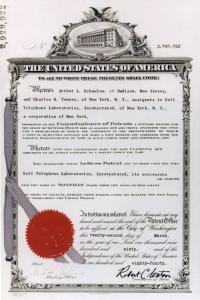| As it has done for generations, intellectual property (IP) law determines how we use patents, copyrights, and trademarks. But over the last few decades, IP law has assumed an increasingly vital role in the dizzying expansion of the Internet and rapid pace of technological, scientific and medical innovation that we are witnessing today. It has therefore grown into one of the world’s biggest and fastest-growing fields of law. Responding to the enormous demand for lawyers with a sound knowledge of intellectual property issues, dozens of law schools worldwide now offer specialized IP law programs and courses as a part of their LL.M. programs. John N. Riccardi directs one of these programs – the Intellectual Property Law LL.M. program at the Boston University School of Law. Riccardi says his students get a “solid grounding in the theory behind the key doctrines of intellectual property law – in copyright, patents and trademark/unfair competition law – while also gaining exposure to some of the cutting-edge issues that individuals and enterprises face as a result of the rapid technological advances taking place throughout the world, whether in digital and information technology or the biological sciences.” According to the US News & World Report 2006 law school survey, the top-ranked IP programs in the United States are Stanford, UC Berkeley (Boalt Hall), and George Washington University (GW Law). Robert Brauneis, who co-directs the IP LL.M. program at GW Law, suggests one of the keys to a successful program is catering to the needs of both US- and foreign-trained lawyers, who often have different reasons for pursuing an LL.M. US-trained lawyers, for example, often come to GW to make the switch to IP law from another field of law, or to get a degree from a higher-ranking school than where they received their J.D. Foreign-trained lawyers, however, may already have lots of experience practising IP law in their home country, but want to learn more about US law or prepare for a US bar exam. “Because we offer a large number of both US and international and comparative courses, students can choose to focus more on domestic or more on international issues”, says Brauneis. “These days, the two are also often intertwined – to understand a provision in US law, you need to understand that it was required by an international treaty, and learn something about the background of that treaty.” “Many of our graduates who stay in the U.S. go to law firms,” says Brauneis. “You will find GW LL.M.s in most major firms with substantial IP practices, such as Finnegan Henderson, Wilson Sonsini, Foley and Lardner, Fish & Richardson, Howrey, Banner & Witcoff, Kenyon & Kenyon, and many, many others.” “We also have graduates in government, not only at the Patent and Trademark Office but also as judicial clerks and legislative aides,” adds Brauneis. “Many are also in-house counsel in corporations, although they often start out at firms. There is a similar mix among foreign students who go back to their home countries, though the mix differs somewhat from country to country.” The list of high-quality IP programs in the United States is perhaps too long to reproduce here, but along with the aforementioned schools, a short list would certainly also include Cardozo-Yeshiva, Duke, Santa Clara, Columbia, Houston, Franklin Pierce, John Marshall, Case Western Reserve University, Chicago-Kent, DePaul, University of Washington (Seattle), Michigan State, and Fordham. There are also excellent IP programs to be found in the United Kingdom, including those at Glasgow, Aberdeen, Edinburgh and the University of London schools (Queen Mary, King’s, UCL). Perhaps the leading specialized program on the European continent is the Munich Intellectual Property Law Center (MIPLC) in Germany, which is a cooperative project of the Max Planck Institute, the universities of Munich and Augsburg, and GW Law. Some LL.M. programs – including those at Berkeley, Stanford, Glasgow, Edinburgh, and Ottawa – give students the opportunity to focus squarely on information technology or “law and technology". Whichever of these programs you might choose, professors in the field agree that the demand for IP lawyers and IP LL.M. graduates shows no signs of abating in the coming years. “I believe that the future career prospects for LL.M. graduates in IP will remain strong,” says Jeffrey M. Samuels of the University of Akron, the home of another specialized IP LL.M. program in the United States. “The level of activity in the areas of patent, trademark, and copyright law, and the importance of IP to the national and global economy, will require an increasing number of attorneys well versed in this area of the law,” adds Samuels. “I would anticipate that the demand for IP attorneys will increase over the years, given the expanding scope of patentable subject matter, the advent of new technologies, and increased globalization.” John Riccardi from Boston University agrees: “I have every reason to believe that the demand for US intellectual property law studies among foreign-trained lawyers will stay strong – and even increase – particularly among the rapidly growing Asian economies of China and India,” says Riccardi. “As US businesses expand into these markets, they will need competent local counsel that understands local laws, as well as the US perspective. This is not just in Asia – it's around the world – but the surge in interest among Asian economies within the past five years has been dramatic.” |





